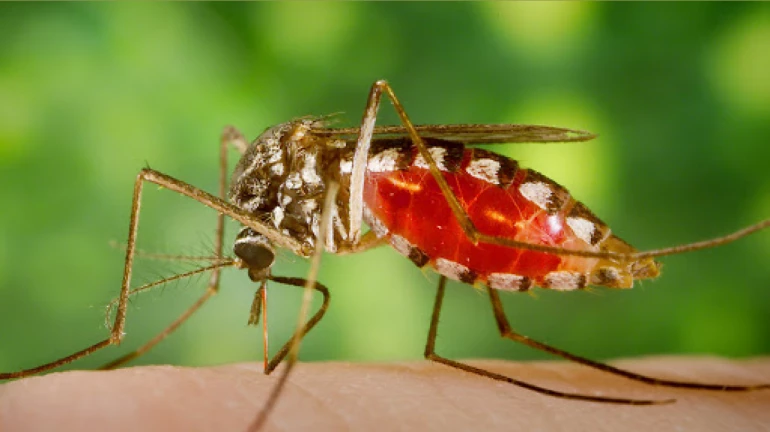Mumbai is witnessing a spike in monsoon-related illnesses over the past two months. The number of cases this year is shooting up to the sky in comparison to last two years. If reports are to be believed, there could be possibility of further rise in cases. Hence, doctors are advising to take necessary precautions for the waterborne diseases, which is affected due to heavy Mumbai rains.
However, at such a difficult time, what are the precautions one must take against it? In an exclusive conversation with Mumbai Live, doctors have revealed the preventive measures to safeguard yourself from waterborne diseases.
Spread of such diseases can be prevented by maintaining hygiene and sanitation and keeping surroundings clean. Also garbage thrown on roads eventually enter lakes and rivers and contaminate it, spreading infection. As a responsible citizen and on humanitarian grounds we all should practice certain things, shared Urvi Maheshwari, Internal Medicine Expert, Zynova Shalby Hospital.
During the monsoon season, there is an increased risk of vector-borne diseases due to the proliferation of mosquitoes and other disease-carrying vectors.
Dr Aniket Mule, consultant internal medicine, Wockhardt Hospitals Mira Road and Dr. Kirandeep Kaur, Consultant, Apollo Clinic, Mumbai, have also shared some precautions that you can take to protect yourself from these diseases:
- Avoid mosquito bites: Use mosquito repellents containing DEET (N,N-diethyl-meta-toluamide) on exposed skin and clothing. Wear long-sleeved shirts, long pants, and socks to minimize exposed skin.
- Use mosquito nets and screens, especially if you live in an area with a high mosquito population. Ensure that windows and doors have screens to prevent mosquitoes from entering your home.
- Eliminate breeding sites: Mosquitoes breed in stagnant water, so regularly check your surroundings for any stagnant water sources like uncovered water containers, flower pots, buckets, or discarded tires. Empty, clean, or cover these sources to prevent mosquito breeding.
- Wear protective clothing: When outdoors, especially during dawn and dusk when mosquitoes are most active, wear light-colored, loose-fitting clothing that covers your arms and legs.
- Stay indoors during peak mosquito activity: Mosquitoes are most active during early morning and evening hours. Limit your outdoor activities during these times to minimize exposure.
- Maintain a clean environment: Keep your surroundings clean and well-maintained. Trim shrubs and bushes, and clear any accumulated debris that can serve as breeding sites for mosquitoes.
- Be aware of disease symptoms: Familiarize yourself with the common symptoms of vector-borne diseases prevalent in your area. Seek medical attention if you experience symptoms such as fever, body aches, rash, or other unusual symptoms.
- Seek medical advice and vaccinations: Consult with healthcare professionals or local health authorities to understand the risk of vector-borne diseases in your area.
- Wearing a mask while having flu will prevent its further transmission to other people and vice versa .
- Boosting one's immunity by having natural immunity boosters like eggs, amla, ginger, and honey water can prevent us from the harmful effects of various pathogens
- Avoid mosquito bites: Use mosquito repellents containing DEET (N,N-diethyl-meta-toluamide) on exposed skin and clothing. Wear long-sleeved shirts, long pants, and socks to minimize exposed skin.
- Use mosquito nets and screens: Sleep under bed nets, especially if you live in an area with a high mosquito population. Ensure that windows and doors have screens to prevent mosquitoes from entering your home.
- Eliminate breeding sites: Mosquitoes breed in stagnant water, so regularly check your surroundings for any stagnant water sources like uncovered water containers, flower pots, buckets, or discarded tires. Empty, clean, or cover these sources to prevent mosquito breeding.
- Wear protective clothing: When outdoors, especially during dawn and dusk when mosquitoes are most active, wear light-colored, loose-fitting clothing that covers your arms and legs.
- Stay indoors during peak mosquito activity: Mosquitoes are most active during early morning and evening hours. Limit your outdoor activities during these times to minimize exposure.
- Maintain a clean environment: Keep your surroundings clean and well-maintained. Trim shrubs and bushes, and clear any accumulated debris that can serve as breeding sites for mosquitoes.
- Be aware of disease symptoms: Familiarize yourself with the common symptoms of vector-borne diseases prevalent in your area. Seek medical attention if you experience symptoms such as fever, body aches, rash, or other unusual symptoms.
- Seek medical advice and vaccinations: Consult with healthcare professionals or local health authorities to understand the risk of vector-borne diseases in your area.
- Wearing a mask while having flu will prevent its further transmission to other people and vice versa .
- Boosting one's immunity by having natural immunity boosters like eggs, amla, ginger, and honey water can prevent us from the harmful effects of various pathogens
- Regularly wash hands
- Eat cooked food and drink boiled water
- Cleanse water tanks regularly
- Keep toilets clean
- Avoid storing water
- Avoid throwing garbage in open
- Avoid going to crowded places






